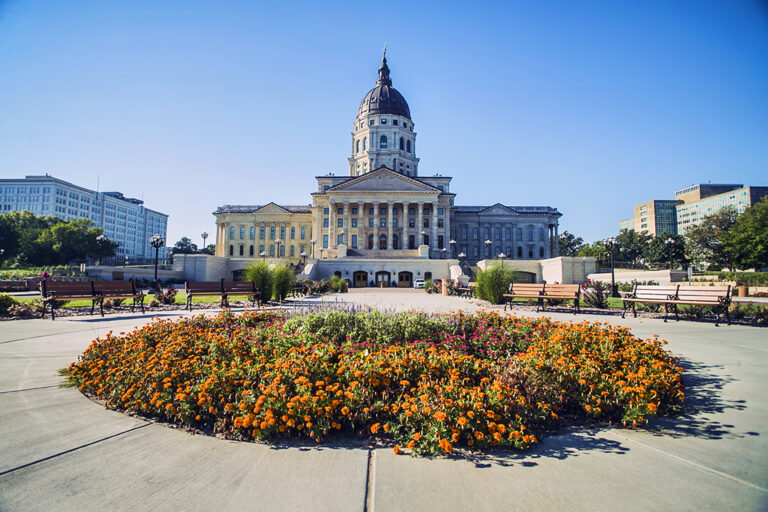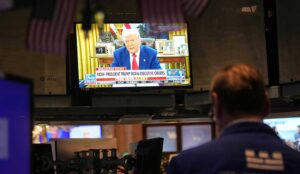TOPEKA, Kan. — Kansas legislators on Thursday, March 19, approved a new 10-year transportation program that many lawmakers see as a much-needed $10 billion stimulus to counter the economic damage from the coronavirus pandemic.
The Republican-controlled Legislature made funding highway, road and bridge improvements a priority as it tackled measures for addressing the new coronavirus and finished a $19.9 billion annual budget to keep state government operating after June. Lawmakers finished what they considered their most pressing work before an early — and unusually long — spring break.
The transportation legislation was approved 112-3 in the House and 37-2 in the Senate. Democratic Gov. Laura Kelly is expected to sign it because it contains her proposals to use existing funds to pay for $1 billion a year in new projects and to pick projects every two years, rather than all 10 years’ worth at the start. The measure also ensures that $300 million worth of projects can be expedited with a fast-track, designing-while-building process to get a few big ones moving.
“We’ve always known that infrastructure projects do help the economy,” said Senate Vice President Jeff Longbine, an Emporia Republican.
It would be the fourth eight- or 10-year transportation program Kansas has launched since 1989, using a combination of bonds, gasoline tax, sales tax and vehicle registration fee revenues.
Legislators and governors have regularly raided highway funds to patch holes elsewhere in the state budget, and there’s no guarantee they won’t do it again with the new program. But House Transportation Committee Richard Proehl, a Parsons Republican, said even if the state has no transportation funds, a program gives it “shovel-ready” projects that can be financed with federal dollars.
Meanwhile, the budget would boost the state’s overall spending by $1.2 billion, or 6.4%. Some big spending issues, such as a pay raise for state workers, are left until later, but the budget sets aside $50 million for responding to the coronavirus. The House passed it 99-16, and the Senate approved it, 28-10.
Lawmakers also passed a resolution extending a state of emergency due to the coronavirus pandemic, which Kelly declared last week, until at least May 1, while requiring legislative leaders to review all Kelly’s coronavirus orders.
The state has had more than 30 COVID-19 cases. The vast majority of people infected recover, though older adults and people with underlying medical problems can develop a severe illness.
The Legislature had been scheduled to stay in session through April 3 before taking its spring break, but its leaders decided to expedite key measures so lawmakers could get away from Statehouse gatherings. Lawmakers planned to return April 27 to wrap up the year’s business.
The two biggest issues were not resolved ahead of the break. Republican leaders gave up for now on their top priority, a proposed anti-abortion amendment to the state constitution, and a bipartisan plan to expand the state’s Medicaid program was stalled. GOP lawmakers also temporarily abandoned a push for income tax cuts.
While the transportation program had broad support, conservative state Republican Sen. Dennis Pyle, of Hiawatha, was skeptical that projects would be spread around evenly and voted no.
“I want to see more hitting the pavement in my district,” Pyle said.
The new program commits $85 million over 10 years for improving the infrastructure for broadband service, and it allows the state to build three toll roads, though it is likely to add toll lanes to existing congested highways.
The program is named the Eisenhower Legacy Transportation Program after President Dwight Eisenhower, the Kansan who pushed for construction of the U.S. interstate highway system. The building that houses the Kansas Department of Transportation’s headquarters in Topeka is named for him.
“This program couldn’t come at a better time,” said Transportation Secretary Julie Lorenz. “As we come out of this pandemic, it’s going to be important to have jobs, so we need to get work in the pipeline.”
The Associated Press is an independent global news organization dedicated to factual reporting. Founded in 1846, AP today remains the most trusted source of fast, accurate, unbiased news in all formats and the essential provider of the technology and services vital to the news business. The Trucker Media Group is subscriber of The Associated Press has been granted the license to use this content on TheTrucker.com and The Trucker newspaper in accordance with its Content License Agreement with The Associated Press.









djmzhxadpjacxhwlazwxfoolmujvzm
gtocghpagmhntalccnlshzujqnszhn